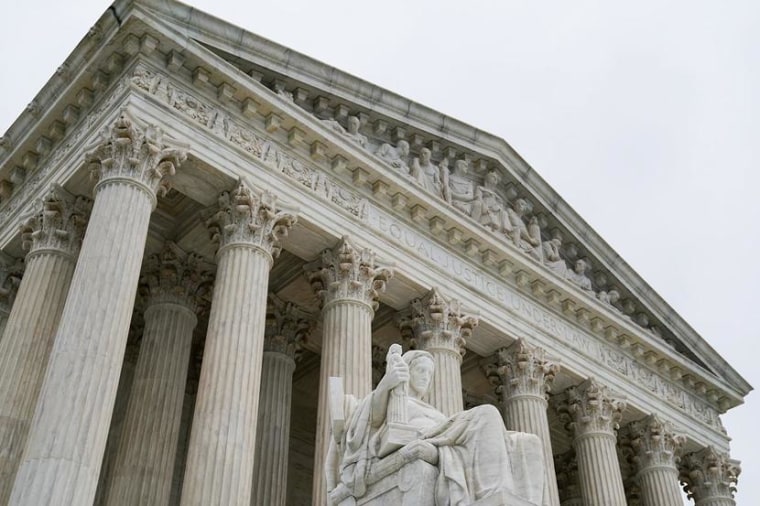In recent weeks, Donald Trump has been unusually brazen in attacking the Justice Department, the U.S. criminal-justice system, a federal district court judge, and even a juror who participated in a case involving one of his felonious friends. What could the president do to escalate matters?
He could go after a couple of Supreme Court justices by name, of course.
President Trump lashed out at two liberal Supreme Court justices on Tuesday, escalating his battle with the judicial system to new heights despite entreaties by his attorney general to refrain from Twitter blasts that complicate the administration's legal fights.
The context is extraordinary in its own right: Donald Trump is in India, on an important diplomatic sojourn, and should probably be focused on assorted meetings and official ceremonies. The Republican instead decided to interrupt his trip with tweets, complaining about a dissent Justice Sonia Sotomayor wrote last week and a comment Justice Ruth Bader Ginsburg made four years ago.
Referencing something he saw on Fox News -- yes, even while in India, the president apparently can't pry himself away -- Trump declared, in reference to the progressive justices, "Both should recuse themselves on all Trump, or Trump related, matters!"
He added, "While 'elections have consequences,' I only ask for fairness, especially when it comes to decisions made by the United States Supreme Court!"
There are a few angles to this to keep in mind. It's worth emphasizing, for example, that some important cases related to the president will soon receive high court scrutiny, including litigation regarding Trump's secret tax returns. The fact that the president wants Justices Sotomayor and Ginsburg to "recuse themselves on all Trump, or Trump related, matters" suggests he may be concerned about the cases' outcome.
It's also of great interest to know whether the president may be laying the groundwork for future legal postures. So far, Trump hasn't deliberately defied any Supreme Court rulings. But if a high court majority were to rule in the coming months that the law requires him to disclose his hidden tax returns to Congress, how likely is it that the president would balk, insisting that Sotomayor and Ginsburg shouldn't have heard the case? Might we see Trump declare that he considers the ruling invalid because the justices didn't recuse themselves as he demanded?
Finally, it's worth remembering from time to time that it was 10 years ago when then-President Barack Obama delivered a State of the Union address in which he expressed his dissatisfaction with the Supreme Court's Citizens United ruling.
"With all due deference to separation of powers," Obama said in 2010, "last week the Supreme Court reversed a century of law that, I believe, will open the floodgates for special interests, including foreign corporations, to spend without limit in our elections. And I urge Democrats and Republicans to pass a bill that helps correct some of these problems."
As regular readers may recall, conservatives, the media, and many prominent figures in the legal community responded with a spirited freak-out -- not to defend the Citizens United rulings, but to balk at the president's public concerns. Americans were told that the remarks, delivered in front of several justices who were on hand for the address, represented an assault on the federal judiciary. A debate ensued about whether Obama had gone too far.
A decade later, as his presidential successor demands that the American justice system bend to his will, the 2010 hullabaloo seems rather ... quaint.
